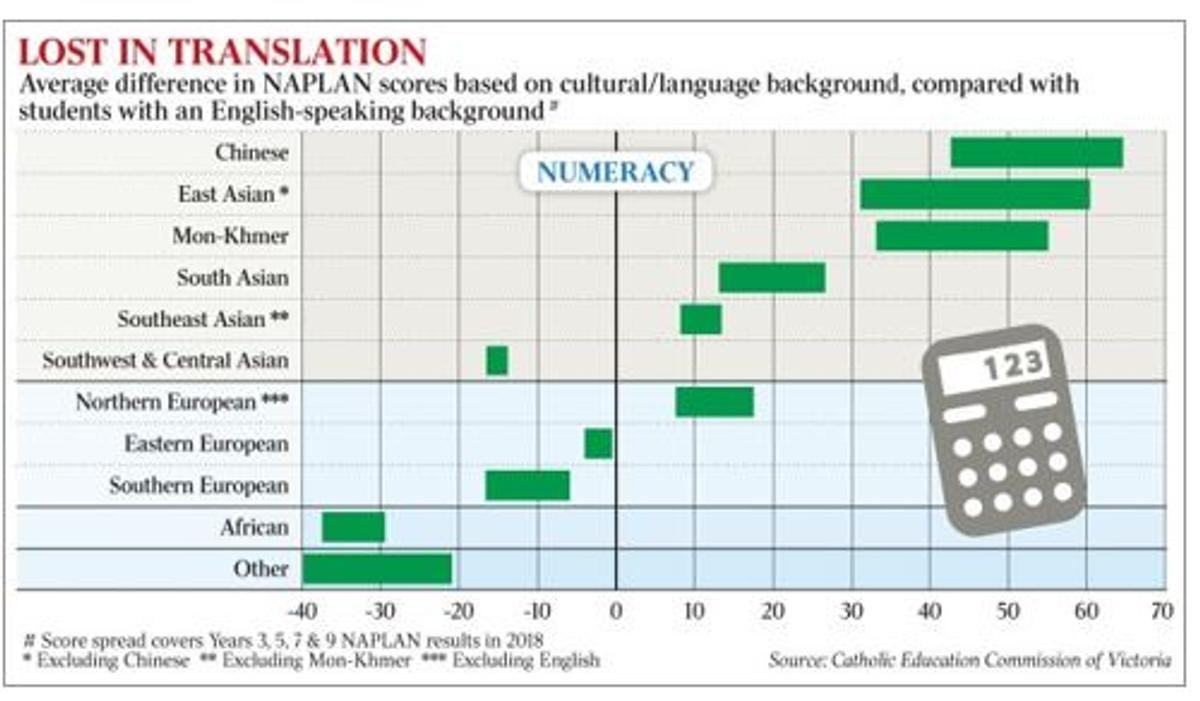Director of School Improvement

Language Background and higher results
A recent analysis of NAPLAN data by the Catholic Education Commission, across 488 catholic schools with 120,000 students, found that students of various language backgrounds obtained statistically significantly different results in numeracy. The analysis accounts for students sharing other factors such as family wealth, residential area, gender and therefore are analyses the single factor of language background. In previous research, it has often been the case that family wealth and income were the single biggest factor accounting for a students’ academic result, therefore it is great to see something beyond money!
This is a significant finding and calls into question what it is about a student’s language background that contributes to such large differences in numeracy results (see below).
Students from a Chinese-speaking background are scoring between 40 to 65 points more than students with an English-speaking background. In NAPLAN numeracy, a difference of 65 points is the difference between the average year 5 student and the average year 7 student, according to analysis by the Grattan Institute. This means that, on average, Chinese-language students are two years ahead compared to English-speaking students.
These are fascinating findings, and one that begs the question as to what is behind these significant differences. What can English-language background students learn from these other cultures (Asian backgrounds mostly, but also northern Europeans who don’t speak English)?
- Is it their attitude to school?
- Is it their attitude to homework?
- Is it that they are more driven to get a better life?
- Is it the respect given to education and to teachers?
- Is it the fact that they speak more than one language?
After investigating the research, it is most likely a combination of all the above.
Having lived in Japan, a country which often ranks second in educational attainment, I was amazed by the attitude to education by people there, such as the amount of study conducted by students who often take on extra-curricular activities after school and yet still complete their homework.
Japan is also a country where respect for others - for teachers and the school - is demonstrated by students, in teams, cleaning the school at the end of the day.
Given that we also teach Japanese at SOC, hopefully some of these cultural structures have an impact in students’ Maths learning!
NAPLAN data research:
https://www.theaustralian.com.au/2019/06/10/f74248e5-5d18-4031-8b90-27ffe3003061.html
Grattan Institute research: https://grattan.edu.au/report/measuring-student-progress
Mr Juan Ospina León

